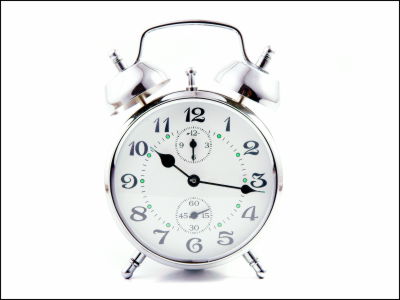A blood test method to easily measure the time of the body clock is developed

by Killian O'Neill
Circadian rhythm is a time measurement mechanism of the 24-hour cycle that is thought to be born by living organisms , and is also called "body clock". The biological clock affects the cycle of sleeping and behavior of living beings, but if the biological clock present in the body of a living thing differs from the actual time, it sometimes adversely affects the living thing. It has been reported that a method to easily measure the body clock of such an organism by blood test has been developed.
Universal method for robust detection of circadian state from gene expression | PNAS
http://www.pnas.org/content/early/2018/09/05/1800314115
Blood Test Could Tell You What Time It Is In Your Body
https://www.livescience.com/63536-blood-test-body-clock.html
This new blood test can figure out what time it is inside your cells | Popular Science
https://www.popsci.com/circadian-rhythm-blood-test
Biological clocks held by living things are not constant even for people who live in the same area of sunrise or sunset. If the body clock shows 9 PM even though the actual time is at midnight, that person has an evening type life rhythm and may not be sleepy even when other people get sleepy . In addition, it is said that the body clock is also related to the effect of the medicine administered by the doctor, and if it can administer the medicine at appropriate timing according to the body clock of each patient, it seems that further effect will be obtained.
The conventional method of measuring the body clock was to collect several blood samples over several hours and measure the blood concentration of melatonin , a hormone that causes sleep. "However, with this method, the expense required for examination increases, which increases the burden on the patient," says Rosemary Brown , a biologist at Northwestern University . Therefore, Mr. Brown developed a new biological clock measurement algorithm called " TimeSignature ".
Mr. Brown and his colleagues noticed the melatonin in the blood, it was a gene that performs a specific function in accordance with the body clock. According to Mr Brown, the body clock has a great influence on the cell level, and 40 to 50% of the human genes are linked with the body clock.

by Amornthep Srina
Therefore, the research team has found out that about 40 genes out of about 20,000 genes in the body have activity with a very strong connection with the body clock. For example, when the biological clock is 6 am, the gene A works more strongly than the gene B, and when the biological clock comes at 8 a.m., the gene C acts more strongly than the genes A and B, He said that he is strongly linked to the biological clock. The activity of genes manifests as the amount of chemical substances in the blood.
"TimeSignature" is an algorithm that learns the change pattern of gene activity by body time and predicts biological clock from blood sample. Unlike the conventional method of measuring the concentration of melatonin in the blood, it is enough that only two blood samples taken at regular intervals are needed to measure the body clock of the subject. Mr. Brown and colleagues actually conducted experiments using TimeSignature to predict blood sampling time from genetic data of blood collected in another study. As a result, it seems that we were able to identify blood sampling time within 2 hours for 11 blood samples.
According to the research team, TimeSignature is predicting the biological clock regardless of whether the user is sick or healthy, and is expected to be applied on a global scale. Although Northwestern University has applied for a patent on TimeSignature, we are planning to release algorithms and measuring software.

by Pixabay
Related Posts:
in Science, Posted by log1h_ik







